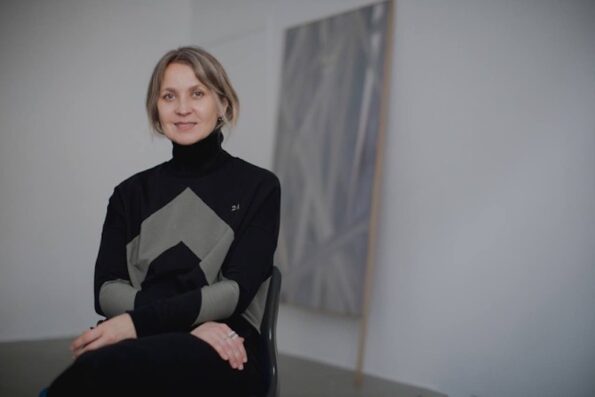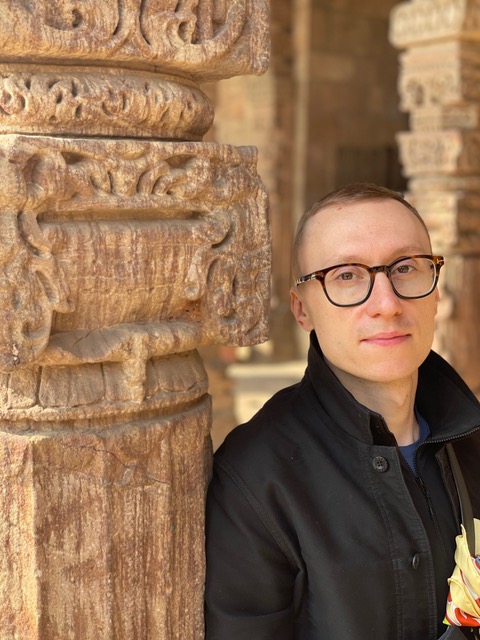Search
To search for an exact match, type the word or phrase you want in quotation marks.
A*DESK has been offering since 2002 contents about criticism and contemporary art. A*DESK has become consolidated thanks to all those who have believed in the project, all those who have followed us, debating, participating and collaborating. Many people have collaborated with A*DESK, and continue to do so. Their efforts, knowledge and belief in the project are what make it grow internationally. At A*DESK we have also generated work for over one hundred professionals in culture, from small collaborations with reviews and classes, to more prolonged and intense collaborations.
At A*DESK we believe in the need for free and universal access to culture and knowledge. We want to carry on being independent, remaining open to more ideas and opinions. If you believe in A*DESK, we need your backing to be able to continue. You can now participate in the project by supporting it. You can choose how much you want to contribute to the project.
You can decide how much you want to bring to the project.

A conversation with Ekaterina Iragui (Iragui Gallery).
In 2011, Ekaterina Iragui established one of Moscow’s leading contemporary art galleries, promoting awareness of contemporary Russian art. The gallery boasts a diverse program spanning various disciplines, with a particular emphasis on conceptual artwork. Notably, it actively facilitates the involvement of Russian artists in global artistic endeavours, fostering their integration into the international art scene.
Central to Iragui’s ethos is a commitment to scholarly inquiry, and she collaborates closely with cultural institutions in Russia and Europe. She advocates for a collaborative approach, valuing partnerships with artists, curators, and collectors alike. Over the years, the gallery has forged impactful collaborations with esteemed institutions such as the Moscow Biennale, Moscow International Biennale for Young Art, Center Georges Pompidou, Espace Louis Vuitton, and Pera Museum, among others.
Moreover, Iragui’s gallery has made its mark on the global stage through participation in renowned international art fairs, including Art Brussels, NADA Miami, Artissima, LOOP, viennacontemporary, Drawing Now Paris, ARCO Lisbon, Cosmoscow, and Paris Internationale. Currently, she is leading efforts to inaugurate a new gallery space in Paris later this year, further solidifying her commitment to advancing the dialogue and visibility of contemporary art on a global scale.
Denis: Given the current circumstances, how do you perceive the intricate interplay between aesthetics and politics?
Ekaterina: In both contemporary times and throughout history, the interplay between art and politics has been intricate and multifaceted. Art has consistently served as a potent medium for expressing political viewpoints, highlighting social injustices, and advocating for societal transformation. Across the ages, artists have boldly challenged authority, shed light on inequality, and kindled movements for change.
Indeed, art remains a pivotal form of protest, where artists’ ingenuity is harnessed to confront pressing political issues and catalyse social progress. Various artistic movements, such as protest art, political satire, and social realism, stand as a testament to the enduring significance of art in engaging with politics. However, it’s essential to recognise that the relationship between art and politics is not unidirectional; art can also be co-opted by political regimes for propaganda and control. Instances of state-sponsored art and censorship have been employed to propagate political ideologies and stifle dissenting voices.
The dynamic interaction between art and politics underscores a continuous influence exchange between artists and political figures. Art possesses the remarkable capacity to challenge norms, incite contemplation, and inspire transformative shifts in the political landscape. As a curator friend once remarked, art emerges as particularly compelling during tumultuous times.
For me personally, art serves as a lens through which to comprehend the world. Upon relocating to Moscow from Paris, my understanding of recent Soviet underground art was shaped by artists’ works, narratives, and experiences. For me, what is now recognised as modern art was a gateway to understanding the cultural and political nuances of the era.
Contemporary art has inherently embodied a form of protest in the context of Russia and its Soviet-post-Soviet trajectory. Its ability to provoke introspection and elicit diverse perspectives renders it a potent force for social critique. For years, my guiding principle has been rooted in the belief that my vocation as a gallerist can contribute to advancing a more democratic society.
D: You began your journey in the art world amidst the vibrant atmosphere of Paris before venturing into Moscow, where you introduced foreign artists and initiated a gradual dialogue with local Russian talents. Reflecting on this trajectory, how would you characterise the evolution of the local artistic landscape from your initial arrival to the present day?
E: The military conflict in Ukraine has brought about a stifling of artistic expression and a notable transformation in the art market within Russia. Artists navigate a landscape fraught with censorship and self-censorship, compelled by the fear of facing consequences for their work. Amidst these challenges, some artists have boldly chosen to channel their dissent through their art, emerging as dissenters in the face of adversity. In contrast, others have opted for more commercially viable themes.
Undoubtedly, the conflict’s repercussions have reverberated throughout galleries, museums, and art fairs, with many international participants exhibiting hesitancy in engaging with the Russian art scene. This hesitancy has contributed to an atmosphere of shocked numbness — uncertainty, and difficulty for artists and stakeholders within the Russian art industry.
D: What upcoming projects are you contemplating? When envisioning future exhibitions, what essential questions do you ask yourself?
E: The overarching goal is to elevate the status of a regional gallery to an international level, with a specific focus on becoming a dynamic exhibition space dedicated to showcasing new works in visual and interdisciplinary art.
I am thrilled about the opening of our new Paris gallery, which will feature an exhibition by acclaimed artist Olga Chernysheva, the recipient of the esteemed 2022 Guerlain Prize in Paris. This exhibition offers an immersive exploration of Chernysheva’s remarkable work, offering audiences a profound insight into her artistic vision and narrative. In addition to showcasing established artists like Chernysheva, I am committed to nurturing emerging talent from the younger generation. One such talent is Rodion Kitaev, who has recently relocated to Paris and established his atelier here. Our programming will feature a diverse mix of solo presentations and curated group projects, ensuring our visitors’ rich and varied artistic experience. This approach reflects our commitment to promoting individual artistic voices and collaborative initiatives within the contemporary art landscape.
Moreover, our presence in Paris presents an exciting opportunity to further deepen our engagement with international artists. I am eager to continue working with Carlos Noronha Feio, Jeanne Susplugas, and Linda Carrara, fostering cross-cultural dialogues and pushing the boundaries of artistic exploration. Overall, the opening of our Paris gallery marks an exciting new chapter.
I look forward to welcoming art enthusiasts and cultural aficionados to experience the vibrant and dynamic exhibitions that lie ahead. I aim to create a communal hub where provocative ideas, diverse artistic forms, artists, and audiences converge, fostering a perspective that champions vision, risk-taking, and discovery. I envision this space as a haven for creative experimentation, where creativity knows no bounds.
Drawing upon my understanding of Eastern Europe, I am committed to offering opportunities to artists from this region, ensuring their voices and perspectives are prominently featured on this international platform.
More info on Iragui Gallery here.
(Cover photo: Portrait Ekaterina Iragui. Courtesy of Ekaterina Iragui and the Iragui Gallery.)

Denis Maksimov is an art historian and cultural critic. He is a Foyle Curator of Exhibitions and Public Programming at Pushkin House and a Lecturer at the Institute of Contemporary Art. He runs the Lecture Performance Archive, an interdisciplinary research project, and co-founded Avenir Institute, an artistic think tank.
"A desk is a dangerous place from which to watch the world" (John Le Carré)